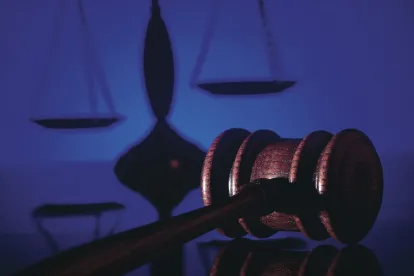The U.S. Supreme Court handed debt collectors a victory in its recent decision in Midland Funding LLC v. Aleida Johnson.
The Court held debt collectors do not face liability under the Fair Debt Collection Practices Act (“FDCPA”) for filing a claim in bankruptcy seeking to recover a stale debt. The Court’s decision reversed the Eleventh Circuit Court of Appeals, which had ruled that the debt collector in the case could be held liable for attempting to collect a credit card debt in bankruptcy despite the fact that the debt was nearly 11 years old, and any state court actions to collect on the debt had become time-barred by a six-year statute of limitations. The Supreme Court’s decision resolves the circuit split created by the Eleventh Circuit’s decision, and provides a significant measure of protection to the debt buying industry, whose business model was placed at risk.
The Supreme Court’s decision is significant because: 1) it clears up the uncertainty created by the prior Eleventh Circuit decision, and 2) it provides some security to debt buyers, whose businesses often include the purchase of time-barred debts.
The decision does not, however, appear to offer a significant exception to the consumer-friendly nature of the FDCPA. Indeed, the decision rests strictly on application of the statutory text of the Bankruptcy Code and the FDCPA and is unlikely to protect debt collectors or debt buyers outside of the bankruptcy context. Thus, businesses who collect debt or may otherwise be subject to the FDCPA should continue to ensure compliance with the statute.
The Midland Funding case arose from the bankruptcy filing of Aleida Johnson in the U.S. District Court for the Southern District of Alabama in March 2014. Two months after Johnson filed her bankruptcy petition, Midland filed a proof of claim asserting that she owed Midland $1,879 in credit card debt. It was undisputed that the last time Johnson had used the credit card at issue was more than ten years prior to her bankruptcy filing, and that the relevant Alabama statute of limitations for the debt was six years. Johnson objected to Midland’s claim on these grounds and the bankruptcy court disallowed it.
Johnson subsequently sued Midland under the FDCPA. She alleged that Midland’s proof of claim constituted a “false,” “deceptive,” “misleading,” “unconscionable,” or “unfair” attempt to collect a debt. The district court disagreed with Johnson and dismissed her claims, but the Eleventh Circuit reversed. The Eleventh Circuit concluded there was no conflict between the Bankruptcy Code and the FDCPA, and that the Bankruptcy Code did not preclude liability for debt collectors who pursue stale debts.
In reversing the Eleventh Circuit and holding there was “nothing misleading or deceptive in the filing of a proof of claim” for a stale debt, the Supreme Court affirmed three other circuit court of appeals decisions in limiting liability for debt collectors under these circumstances. Writing for the 5-3 majority, Justice Breyer reasoned that filing a proof of claim in accordance with the Bankruptcy Code, even a non-allowable claim as Midland had done, could not create liability under the FDCPA.




 />i
/>i

